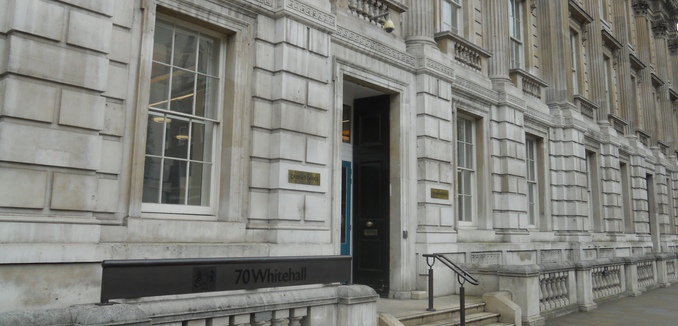The United Kingdom is set to prevent its publicly funded bodies from engaging in boycotts of Israel.
Under new procurement guidelines to be announced later this week, local governments will be prevented from violating a World Trade Organisation accord signed by the EU and Israel that prohibits singling-out suppliers from participating nations, such as Israel, for discriminatory treatment.
The directive will explain that any boycotts of Israeli products by public officials are “inappropriate, outside where formal legal sanctions, embargoes and restrictions have been put in place by the government.” Cabinet Office Minister Matthew Hancock, who plans to announce the regulations during his upcoming trip to Israel, told The Guardian that the move also addresses concerns that boycotts of the Jewish state help fuel anti-Semitism.
“We need to challenge and prevent these divisive town hall boycotts,” Hancock said. “The new guidance on procurement, combined with changes we are making to how pension pots can be invested, will help prevent damaging and counterproductive local foreign policies undermining our national security.”
The reference to pension funds concerns separate government efforts to prevent publicly-funded bodies from divesting pensions from industries, such as fossil fuels or arms manufacturing, which some local activists believe to be unethical.
According to The Jewish Chronicle, the new guidelines “would make it easier for the government to legally challenge organisations which boycott Israel.”
While Labour Party leader Jeremy Corbyn has raised objections to the new guidelines, his position was challenged by Conservative MP and former cabinet member Sir Eric Pickles. “The Labour Party wants councils to pursue their own militant foreign policies at the expense of Britain’s economic and national security,” Pickles charged. “By defending these divisive town hall boycotts, they are not only risking damage to Britain’s international relations, but weakening integration here at home and fueling antisemitism. Counter-productive local foreign policies that promote hate have no place in British politics.”
The regulations were initially announced at the end of last year.
London mayor Boris Johnson blasted boycotters of Israel during a trip to Tel Aviv in November, saying that he “cannot think of anything more foolish” than to boycott “a country that when all is said and done is the only democracy in the region, the only place that has in my view a pluralist open society.” That same week, Lord Robert Winston, a British pioneer in the field of in-vitro fertilization, said that the anti-Israel boycott campaign consists of “mostly second-rate academics from minor universities who have never done anything.”
The British government strongly condemned a letter signed by UK university professors in October calling for a boycott of Israel, with Britain’s ambassador to Israel saying that Downing Street “firmly opposes” such initiatives and “will never allow those who want to boycott Israel to shut down 60 years worth of vibrant exchange and partnership that does so much to make both our countries stronger.”
That same month, over 150 British artists, including Harry Potter author J.K. Rowling, Booker Prize-winning author Hilary Mantel, and noted historian Simon Schama, signed a public letter calling boycott campaigns against Israel “divisive and discriminatory.”
Both houses of Congress introduced bipartisan bills last week to support states that prohibit commercial ties with entities or individuals who boycott Israel.
The congressional bills comes after a wave of states passed laws disassociating themselves from the BDS movement. Illinois passed a law last year prohibiting the state’s pension funds from investing in any entity that boycotts Israel. South Carolina passed a law a month later prohibiting the state from doing business with any entity or individual that boycotts Israel. Tennessee passed a law last year condemning the BDS movement.
This year, the Indiana House of Representatives unanimously passed a resolution prohibiting the state from commercial dealings with any business or person that boycotts Israel. Similar bills have been proposed in California, New York, Florida, Ohio, and Pennsylvania. An activist involved with the effort to fight anti-Israel boycotts told Tablet that he expects the number of such states to reach double digits by the summer.
[Photo: Mikey / Flickr ]




